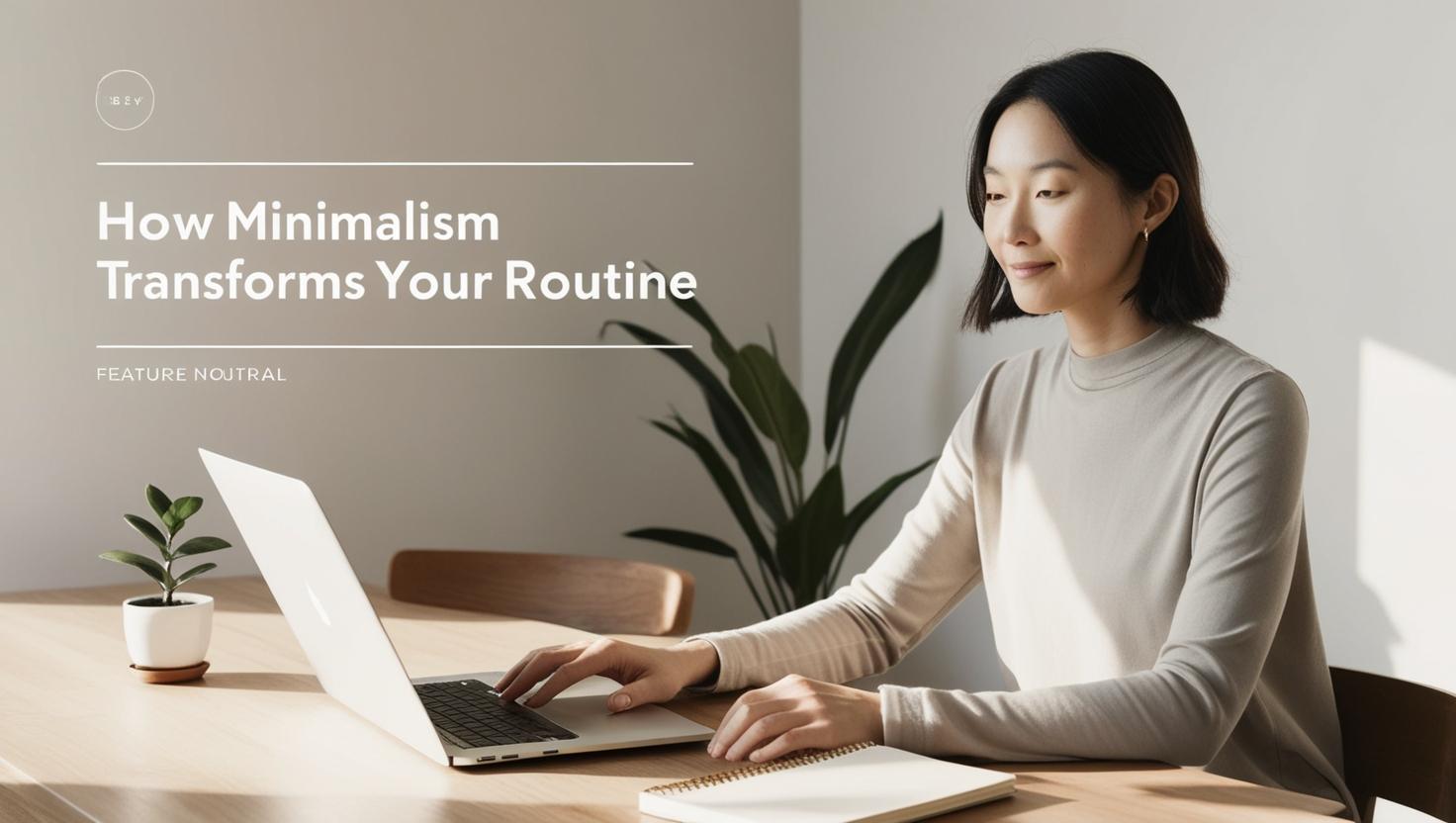1. Less Clutter, More Clarity
A cluttered space often leads to a cluttered mind. Studies show that excessive belongings contribute to stress and decision fatigue. By adopting minimalism, you eliminate unnecessary items, creating a clean and peaceful environment that enhances focus and relaxation.
Imagine waking up in a tidy bedroom, where everything has a place. This not only saves time but also reduces morning stress, allowing you to start the day with a clear mindset.
2. Streamlining Daily Decisions
Decision fatigue is real. Every day, we make countless choices, from what to wear to what tasks to prioritize. A minimalist lifestyle simplifies these decisions by reducing the number of options.
For example, many successful people, like Steve Jobs and Mark Zuckerberg, adopted a minimalist wardrobe to save mental energy for more important decisions. You don’t need to go to extremes, but curating your daily choices can significantly reduce stress.
3. Improved Productivity
A minimalist approach to your schedule can work wonders for productivity. Many people overcommit to tasks, meetings, and social obligations, leading to burnout. Minimalism teaches you to say no to what doesn’t align with your priorities, freeing up time for what truly matters.
Instead of a packed schedule filled with low-impact tasks, a minimalist lifestyle allows you to focus on deep work, meaningful relationships, and self-care.
Minimalism and Mental Well-Being
1. Reducing Anxiety and Overwhelm
Too much clutter, whether physical or mental, can cause anxiety. A cluttered desk, a long to-do list, or endless notifications can make you feel overwhelmed. Minimalism helps create mental space, allowing you to be present and less reactive to external stressors.
By simplifying your digital habits—such as limiting social media, organizing your inbox, and reducing screen time—you can significantly improve mental clarity and emotional balance.
2. Strengthening Relationships
When you remove distractions and unnecessary commitments, you make room for deeper connections. Instead of filling your time with mindless activities, minimalism allows you to prioritize quality time with loved ones. Stronger relationships contribute to long-term happiness and well-being.
How to Start Living a Minimalist Life
- Declutter Your Space: Start by eliminating unused and unnecessary items. If you haven’t used something in the past year, consider donating or selling it.
- Simplify Your Schedule: Review your commitments and cut out activities that don’t bring value or joy.
- Curate Your Digital Life: Unsubscribe from emails, limit social media use, and remove apps that waste your time.
- Adopt Mindful Consumption: Before buying something new, ask yourself if it truly adds value to your life.
- Prioritize What Matters: Focus on experiences, meaningful work, and relationships rather than accumulating more things.
Conclusion
Embracing minimalism can lead to a more organized, peaceful, and fulfilling life. By eliminating excess and focusing on what truly matters, you free yourself from unnecessary stress and create space for happiness. Whether through decluttering, simplifying decisions, or streamlining commitments, this lifestyle can drastically improve your routine and well-being. Are you ready to take the first step toward a more intentional life?
